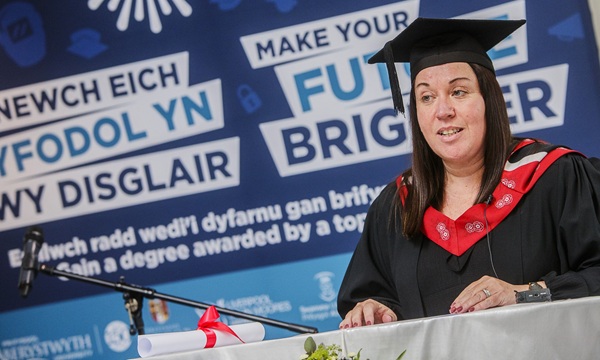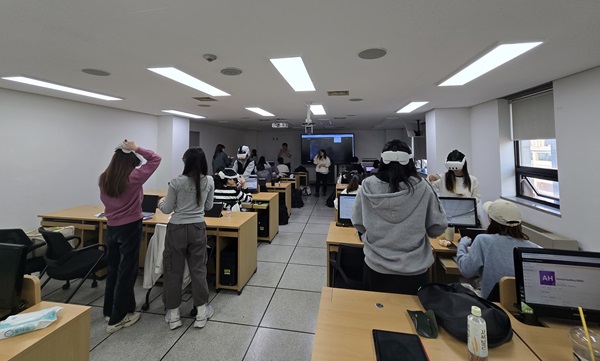
Written by:
Professor Amanda Kirby
CEO of Do-IT Solutions- a tech-for-good company that provides training for organizations about neurodiversity in education and the workplace. Do-IT has developed screening tools to measure the spiky profiles we are talking about.
Amanda is one of the 20 UK LinkedIn Voices for 2020 and also co-author with Theo Smith of the recently published best-selling book Neurodiversity at Work, Drive, Innovation, performance, and productivity in a neurodiverse workforce.
What makes a good leader?
Much has been written about what makes a good leader. Daniel Goleman first described the phrase “emotional intelligence” in his 1995 book of the same name. Goleman found that truly effective leaders are distinguished by a high degree of emotional intelligence. Without it, a person can have first-class training, an incisive mind, and an endless supply of good ideas, but he still won’t be a great leader.
In 2016 Sunnie Giles completed research asking leaders what were the most important skills to being a great leader.
A survey of 195 leaders from more than 30 global organizations suggested that there were 5 major themes of competencies that strong leaders exhibit:
- High ethical standards and providing a safe environment
- Empowering individuals to self-organize
- Promoting connection and belonging among employees
- Open to new ideas and experimentation
- Committed to the professional and intellectual growth of employees
This week in a passing conversation with a leader of a growing business I heard that we need to be strong and be clear what our expectations are for all so that everyone complies and we don’t become too soft on everyone. I was a little shocked by this dogmatic approach and it made me really think about what we want from our ‘leaders’.
Learnings
5 years on in our Covid world can we take some of these learnings over the past 18 months?
What have I learned during Covid-19 that we can use to be more inclusive?
- We all live very differently – we may be living as a multigenerational group, as single parents, in shared accommodation, and alone and a lot more variations on a theme. Our homes may be rich in technology or we may be managing on one pay-as-you-go smartphone. We have seen a digital divide.
- We work differently – at home, we may have learned to work in teams for some jobs, alone for others; developing novel ideas of ways to have fun and then implementing these ideas; sharing out the jobs fairly and to those with skills, or needing to recognize we have had to learn and teach skills including cooking, cleaning, gardening, and housework for example).
- We can pivot fast when we have to – e.g., WFH – how many of us knew what that was 18 months ago. We Zoom and Teams and think nothing of it. We have seen some restaurants flipping to home delivery, and we have used online ordering and delivery as the de facto way to day-to-day shop.
- We can be highly innovative when we have to –e.g., the speed of Corona vaccine production has been amazing to see.
- We can be flexible and adaptable – we allowed a real translation of the meaning of flexible working. We have seen children and pets in the background of meetings and acknowledged them rather than pretending they didn’t exist. We saw and have all shared our vulnerabilities too in a way that we would never have done before.
- We can learn from others and widened our networks – I have met people from across the globe for meetings and webinars in a way that would not have happened before.
- We learned to communicate and learn in a range of ways – online and offline, synchronous and asynchronous, closed-captioned and recorded…
Going back or moving forward?
There is a lot of talk at the moment about going back to work and what hybrid working really means. We have both opportunities and challenges at this time that can allow a more inclusive leadership or alternatively, we can retreat back to delivering a uniform approach to the workplace, which means it only fits for some of us and only for some of the time.
Developing inclusive leadership
Inclusive leadership means bringing the best out of everybody in your team or organization.
The meaning of the word Inclusion is:
“A state of being included or including others in groups and structures”.
Inclusion happens when you value both the differences and the commonalities of the others.”
Sometimes we end up being exclusive in the way we operate because our systems and processes mean only some people can possibly engage.
We all need the means to communicate in a manner that can be understood and also be able to understand and allow the voices of others around us to be present.
Neuroinclusive leadership means embracing the cognitive variability that means that we may think,process, communicate, and move differently.
Effective leaders will consider what their staff are feeling and not see this as a ‘soft approach’ which I heard from someone in a conversation this week. The reality is that some people will remain more productive and able to engage at home; others may find part of the week at home works best for completeing some tasks, and for others there is a need to be ‘at work’ because home is not a place where they can work. We have an opportunity to continue the conversations we have had in this last year developing what works for different teams and people. Single edicts won’t ever suit everybody.
Amy Gallo talked recently about the anxiety that some people are feeling about not knowing how, where and when they will work.The interesting thing is that some people will leave their jobs if they cannot continue to WFH or flexibly as they have been allowed during Covid-19. In a survey in the US of over 2000 people, 58% of workers said they would “absolutely” look for a new job if they could not continue remote work in their current roles.
So what does this mean for leaders?
EACH By considering EACH of is we can create a place where inclusive leadership happens.
EACH stands for Empowerment, Accountability, Courage, and Humility
Empowerment
Empowerment means converting a situation where communication is blocked by one or more factors like intimidation, or grief, or fear into a situation where communicators are free from any blockade and are able to transfer thoughts freely without any hesitation. This can be equated with psychological safety as well. ( See my previous newsletter relating to this in more detail). It means we need to recognise that each person has to have a voice that can be heard and that the dominant position ( which is usually the one which is loudest) doesn’t predict our working patterns that may not suit all or leave out talent in the process.
Accountability
Accountability is about holding yourself and others responsible for inclusive communication. A baseline audit allows you to recognize how communication can be improved and then regular audits allow you to see if there are bumps in the road of communication and holds you as a leader responsible for trying to rectify the situation.
Courage
Courage is about helping us to understand, address and communicate across differences and the willingness and the ability to engage and see the value in being inclusive.
This means we need to be open to checking what we have said has been understood and have the courage to make changes.
Humility
Humility is taking the opportunity to reflect and think about how we can learn, and understand, and accept our mistakes as well as learn from others. We need to be up for criticism, gain feedback and be prepared to listen and learn, and not be defensive.
Neuroinclusive practice starts at the top of your organization.
Leaders need to show this is not a tick box exercise or this year’s thing! Perhaps we need to reframe the concept of ‘soft skills’ and see that these are crucial skills to understand and embrace.
It needs to be woven into hiring processes, onboarding and recognized that leaders help individuals to develop and grow. It requires an EACH approach. What do you think?







